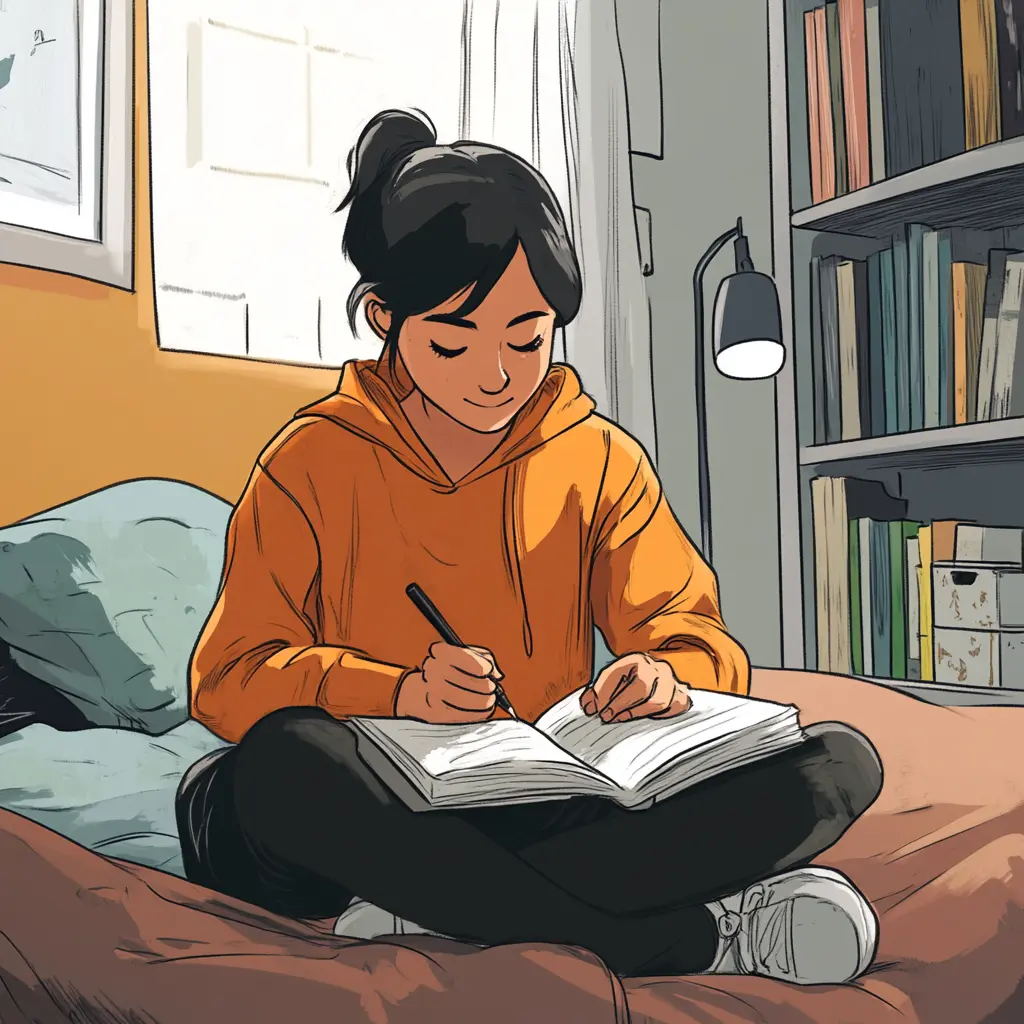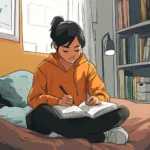Imagine this—you’re walking down the street, and you overhear a snippet of conversation: “I told you not to open that box.” Suddenly, your mind spins. What’s in the box? Why weren’t they supposed to open it? What happens next? That could be the seed of an incredible story. But if you don’t write it down, you’ll probably forget it by the time you get home. That’s why carrying a notepad or using your phone to jot down ideas is one of the smartest things you can do as a writer.
Great story ideas don’t show up when it’s convenient. They don’t wait until you’re sitting at your desk, ready to write. They come when you least expect them—while you’re in the middle of class, watching a movie, or trying to fall asleep. If you don’t capture them in the moment, they’re gone. You might think you’ll remember that amazing plot twist or that perfect line of dialogue, but your brain is juggling a hundred things at once. Writing it down makes sure it stays yours.
A notepad (or your phone’s notes app) isn’t just for story ideas—it’s also a place to collect the little details that make writing feel real. Let’s say you notice how the sky looks weirdly greenish before a storm, or the way your friend’s voice shakes when they’re nervous. These are gold for storytelling. The best writers pay attention to the world around them, and writing down what they see, hear, and feel helps them use those details later.
Think about some of the biggest books and movies—many of them started as tiny notes scribbled down at random moments. These small, random ideas might have been lost if the writers hadn’t captured them right then:
Frankenstein – Mary Shelley
Mary Shelley didn’t sit down one day and decide to write a classic. The idea for Frankenstein came to her during a ghost story contest with friends on a stormy night. She had a dream about a scientist bringing a creature to life—and immediately wrote it down. If she hadn’t, we might never have had one of the most famous horror stories of all time.
Jurassic Park – Michael Crichton
Crichton was fascinated by the idea of cloning dinosaurs. The first spark of Jurassic Park came when he read about advances in DNA research. What if scientists could actually bring dinosaurs back? That what if question became a sci-fi classic.
Inception – Christopher Nolan
Nolan, the writer and director of Inception, had been thinking about dreams for years. He kept notes on the idea of people entering other people’s dreams, but he didn’t know how to shape it into a full story. Over time, he wrote down little pieces—ideas about dream layers, time moving differently in dreams, and how a person could plant an idea in someone’s subconscious. Eventually, all those notes turned into the mind-bending movie we know today.
These stories prove that inspiration can strike anywhere—a dream, a news story, a science experiment, or even a conversation with friends. The key is writing those ideas down when they come to you. The little flashes of inspiration need to be captured before they disappear. Who knows? The random note you scribble in your phone today might become the next big story.
So, get in the habit. If something interesting happens or a thought pops into your head that makes you wonder what if, write it down. Your future self—the one sitting at their desk, trying to come up with a story—will thank you.
Practical ideas
Small notepads can be found at your local grocery store and cost very little. Some only cost $1 or so. These are small enough that you can carry them in your pocket. You’ll need a very short pen that won’t leak, so buy one that is retractable or leak-proof. Carry that inside the notepad.
Keep a larger notepad next to your bed in case you have an idea at night. Sometimes you’ll have an idea right before you fall asleep. Other times you may wake up at night with a great idea from a dream. The same can happen when your alarm goes off in the morning. For those times, buy a pen with a red light. These ingenius pens have a tiny light that switches on when you click on the pen, highlighting a very small portion of the page in red light. The red light lets you see what you’re writing but because it’s red, it won’t wake you up. They don’t cost very much and will make sure you never miss a great idea because you’re only half awake.


